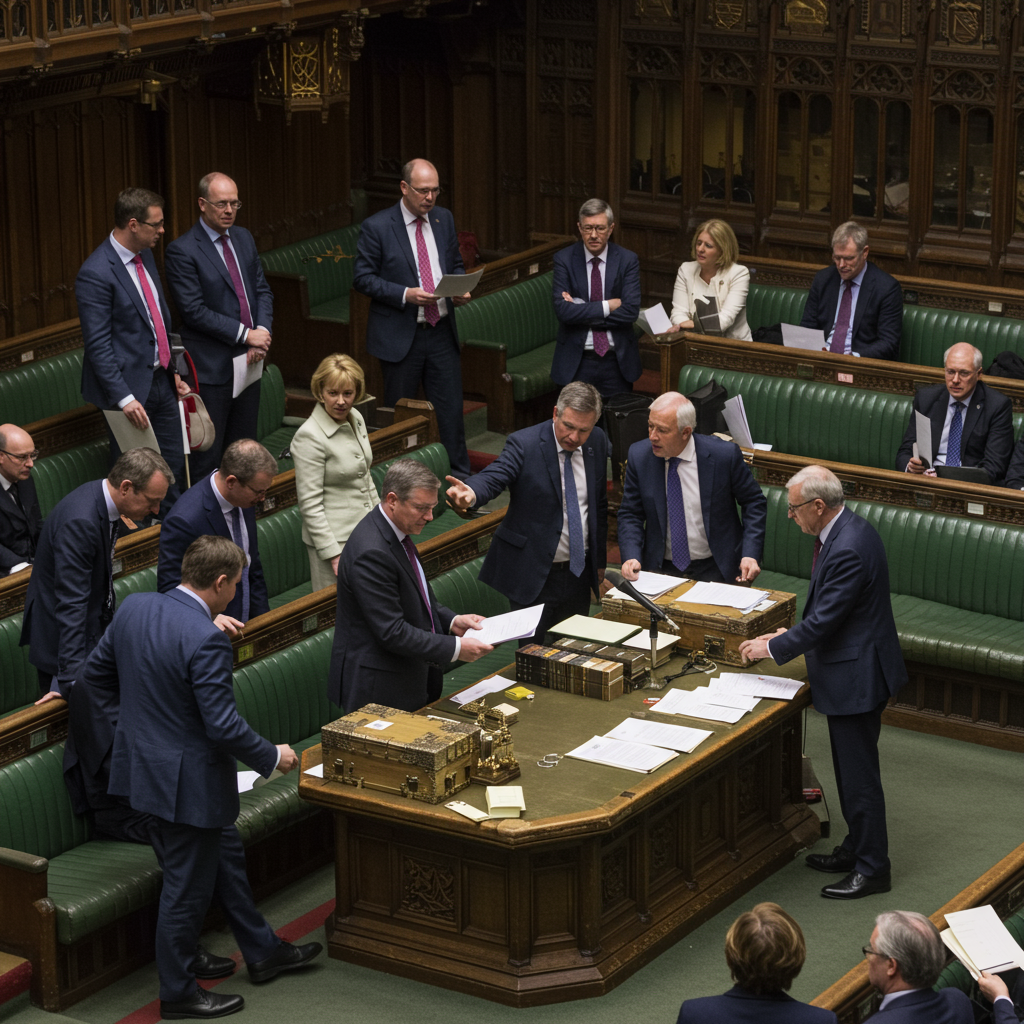In a moment described as historic and emotionally charged, Members of Parliament in the House of Commons have voted to approve a bill that could pave the way for profound social change in England and Wales. The Terminally Ill Adults Bill, which seeks to grant eligible adults the right to end their lives, successfully passed its third reading, moving a significant step closer to becoming law.
The bill received 314 votes in favour to 291 against, securing a majority of 23. This margin, though notable, represents a decrease compared to the bill’s initial debate in November, when it passed by a majority of 55. Supporters and opponents alike acknowledged the weight of the decision, with campaigners gathering outside Parliament throughout the day as MPs debated the sensitive issue.
What the Bill Proposes
The proposed legislation would allow adults aged 18 and over who have been diagnosed with a terminal illness, with a prognosis of less than six months to live, to apply for an assisted death. A key condition is that the individual must be capable of self-administering the fatal drugs.
The process for approval is stringent. Requests would need to be signed off by two doctors and a panel comprising a social worker, a senior legal figure, and a psychiatrist. This proposed structure differs from earlier versions of the bill which considered requiring High Court Judge approval, a change made following objections from the legal profession.
The vote on the bill was conducted as a free vote, allowing MPs to vote according to their conscience rather than adhering to a party line. Notably, Prime Minister Sir Keir Starmer backed the measure, while Conservative leader Kemi Badenoch and Health Secretary Wes Streeting were among those who voted against it.
The Path Ahead: House of Lords Scrutiny
Following its passage through the Commons, the bill will now proceed to the House of Lords for further scrutiny. While supporters express confidence that the Lords will ultimately approve the bill, perhaps with amendments, its passage is not guaranteed. The absence of assisted dying in the governing party’s election manifesto may offer the Lords more latitude in their examination.
Should the bill successfully navigate the Lords and receive final approval, ministers would have a maximum of four years to implement the necessary measures. This means that assisted dying might not become legally available in England and Wales until potentially 2029.
Arguments For and Against
The debate in the Commons was marked by passionate arguments and personal testimonies. Supporters highlighted the importance of providing choice and dignity to terminally ill individuals facing unbearable suffering. Labour MP Kim Leadbeater, who championed the bill, spoke of the “profound injustices of the status quo” and argued that for terminally ill people, the choice is about “how they die,” not whether they live or die. Supporters argued that the current law forces some to end their lives secretly, attempt suicide, or undertake costly and often lonely trips abroad to countries where assisted dying is legal, risking prosecution for loved ones who assist. Broadcaster Dame Esther Rantzen, a prominent supporter, stated the bill would protect terminally ill patients and their families from the “agony and loss of dignity created by a bad death,” expressing hope, though personal doubt about seeing it passed in her lifetime, that future generations would have this option.
Opponents raised significant concerns, primarily focusing on the potential for vulnerable individuals, including the disabled and older people, to be coerced into ending their lives. Conservative MP Danny Kruger argued that the reduced majority showed support was “ebbing away fast” and hoped the Lords would reject or “substantially strengthen” the bill. Baroness Tanni Grey-Thompson shared that “disabled people are absolutely terrified” by the bill and vowed to propose amendments in the Lords to make safeguards “as tight as possible” against coercion. Critics questioned whether the bill’s proposed safeguards were truly sufficient, arguing some had been weakened during the Commons process. Concerns were also voiced by medical professional bodies who, while potentially neutral on the principle, opposed the specific measures outlined in the bill, citing potential failures of scrutiny and a shortage of staff for approval panels. George Fielding from the Not Dead Yet campaign called the bill “ableist,” arguing it could endanger vulnerable people and that those considering it due to disability might be experiencing “unprocessed hurt and trauma,” advocating for better palliative care and support instead.
Key Amendments Considered
During the Commons stage, MPs also voted on several amendments. They backed measures to close the so-called “anorexia loophole,” preventing individuals from qualifying based solely on life-threatening malnutrition. An amendment requiring the government to publish a review of palliative care services within a year of the bill passing was also approved, reflecting concerns about the availability and funding of end-of-life care. However, an attempt to block access for people suffering mental health problems or because they feel “burdensome” was defeated. Amendments to ban advertising assisted dying and include it within NHS purposes were also passed.
Hospice and Palliative Care Implications
Organisations providing hospice and end-of-life care, while often remaining neutral on the principle of assisted dying, highlighted the significant implications of the bill. They stressed the urgent need for the government to ensure high-quality palliative care is available and adequately funded for everyone, regardless of the bill’s outcome. Concerns were raised that individuals might feel pressured towards assisted dying due to fear of not receiving sufficient care, emphasizing that many people already lack the palliative support they need. These organisations noted many unanswered questions regarding how assisted dying would be delivered and the potential involvement of hospices.
The passage of the bill through the House of Commons marks a critical juncture in the long-running debate over assisted dying in the UK, placing it in the company of other nations like Canada, Australia, and parts of the US that have legalised forms of assisted dying or euthanasia. The focus now shifts to the House of Lords, where the proposed legislation will face intense scrutiny before any potential implementation decades from now.




